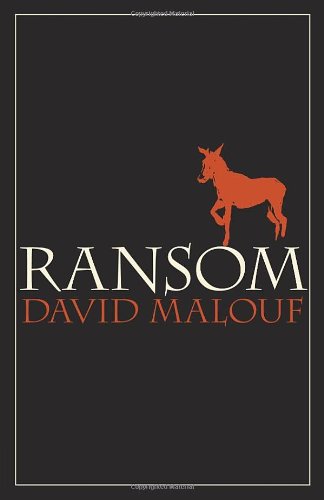Ransom
Ransom is a diamond of a novel, tiny but flawless, prose so pared away and carefully constructed that however many times you read it, it persists in revealing new meanings and unfolding new images to the mind’s eye.
It begins with the tragic consequences of the anger of Achilles, the deaths of Patroclus and Hector and Achilles’ desecration of Hector’s body. But fatherhood is its real subject matter. Priam mourns his son, but also reflects on his own fatherless upbringing. Achilles, who thought the war was going to be ‘over by Christmas’, misses his own son. When Priam decides he will go to intercede with Achilles for Hector’s body, he goes not as a king but as a father, plainly dressed and travelling in an ordinary mule-cart, whose driver is himself no stranger to the grief of losing a child.
As with Homer, so with Malouf; when heroes step away from their public image and allow themselves to be mortal, miracles of empathy and reconciliation can happen, beautifully represented here by small details – the feel of water running over bare feet in the heat of the day, a shared meal, sleeping in the open air under a good blanket. These are also the things which, by contrast, warn us about the consequences of heroism and its inflexibility. Cassandra-like, Malouf spares the reader nothing in his sickening account of the inevitable slaughter of Priam by Neoptolemus.
In his afterword, he recounts first encountering The Iliad as a boy in Brisbane during World War Two. He, like Priam and Achilles, was suspended in the middle of a war with no end in sight. I assume it is no accident that he has come back to the subject now, and I wish fiction like this was taken more seriously by politicians. This book is, quite simply, a masterpiece.










